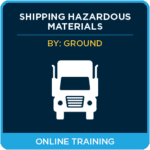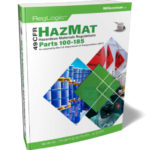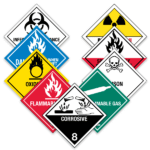
What is Adequate Training?
Companies who ship higher-powered lithium batteries must be trained in the regulations.
By ground, that would mean meeting the requirements under Subpart H of the 49 CFR regulations, Part 6 of the Transportation of Dangerous Goods Regulation, the IATA Regulations for air, and/or the IMDG Regulations for ocean.
What is a high-powered battery?
For lithium-ion batteries, a cell has a watt-hour rating of 20 or more, and for a battery with a watt-hour rating of 100 or more.
For lithium metal batteries, a cell has a gram content of 1 or more, and for a battery, a gram content of 2 or more.
What about lower-powered lithium batteries?
Lower-powered batteries are:
Lithium-ion batteries, a cell with a watt-hour rating of less than 20, and a battery with a watt-hour rating of less than 100.
For lithium metal batteries, a cell has a gram content of less than 1, and for a battery, a gram content of less than 2.
The regulations say the usual “formal” training is not required. Rather,” adequate instruction” is required when shipping Section II (lower-powered). What does that mean exactly?
The IATA Lithium Battery Guidance Document (2024) provides some insight:
- Employers must determine the types of batteries they ship. For example, batteries are on their own, with equipment, or contained in equipment. Determine if the batteries are lithium-ion or lithium-metal.
- Once the determination has been made, clearly document the configurations.
- Write clear, easy-to-understand work instructions for those responsible for shipping the batteries. Instructions should include packing to prevent short-circuits and activation during transport and movement. Marking and required documentation should also be included.
- Shippers should be taken through the work instructions to ensure they understand and follow it as needed.
- The employer must record that “adequate instruction” has taken place, including the employee’s name, date of instruction, and what was taught.
- Review the work instructions and training periodically and ensure all new employees are provided the instruction.
Does your company need help preparing their “adequate instruction”? Contact our team of experts at 855.734.5469 or send us an email, we’re happy to help.
Stay up to date and sign up for our newsletter!
We have all the products, services and training you need to ensure your staff is properly trained and informed.
 Hazardous Materials Hazardous MaterialsTraining |








 ICC USA
ICC USA ICC Canada
ICC Canada